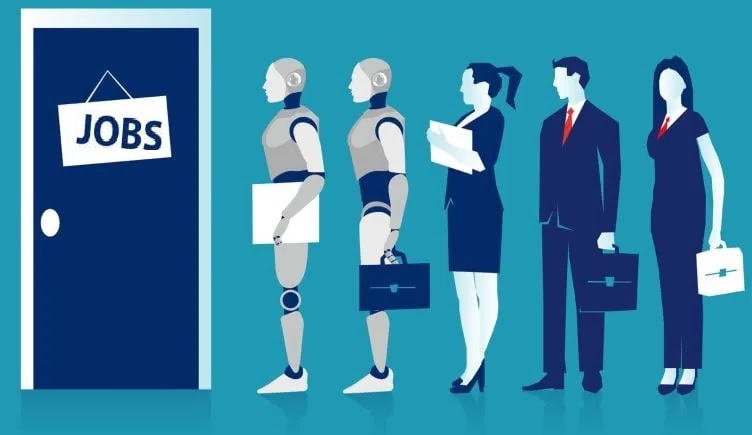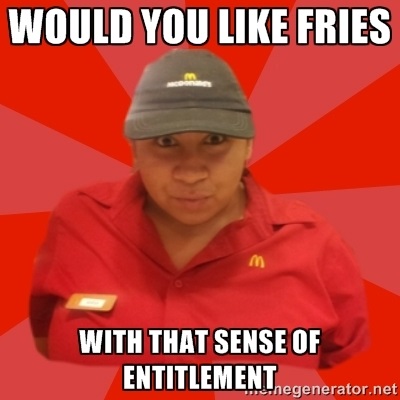This Article is 95.6% Made by Human / 4.4% by Artificial Intelligence
One of the most concerning uncertainties surrounding the emergence of artificial intelligence is the impact on human jobs.
100% Satisfaction Guarantee
Let us start with a specific example – the customer support specialist. This is a human-facing role. The primary objective of a Customer Support Specialist is to ensure customer satisfaction.
The Gradual Extinction of Customer Support Roles
Within the past decade or so, several milestone transformations have influenced the decline of customer support specialists. Automated responses for customer support telephone lines. Globalization. And chat-bots.
Chat-bots evolved with the human input of information to service clients. SaaS-based products soon engineered fancy pop-ups for everyone. Just look at Uber if you want a solid case-study – getting through to a person is like trying to contact the King of Thailand.
The introduction of new artificial intelligence for customer support solutions will make chat-bots look like an AM/FM frequency radio at the antique market.
The Raging Battle: A Salute to Those on the Front Lines
There are a handful of professions waging a battle against the ominous presence of artificial intelligence. This is a new frontier – not only for technology, but for legal precedent and our appetite for consumption.
OpenAI is serving our appetite in two fundamental ways: text-based content (i.e. ChatGPT) and visual-based content (i.e. DALL·E). How we consume this content boils down to our own taste-buds, perceptions and individual needs. It is all very human-driven, and it is our degrees of palpable fulfillment that will ultimately dictate how far this penetrates the fate of other professions.
Sarah Silverman, writer, comedian and actress sued the ChatGPT developer OpenAI and Mark Zuckerberg’s Meta for copyright infringement.
We need a way to leave a human mark. Literally, a Made by Human insignia that traces origins of our labor, like certifying products as “organic”.
If we’re building the weapon that threatens our very livelihood, we can engineer the solution that safeguards it.
The Ouroboros Effect
If we seek retribution for labor and the preservation of human work, we need to remain ahead of innovation. There are several action-items that may safeguard human interests:
- Consolidation of Interest. Concentration of efforts within formal structures or establish new ones tailored to this subject;
- Litigation. Swift legal action based on existing laws to remedy breaches and establish legal precedents for future litigation;
- Technological Innovation. Cutting-edge technology that: (a) engineers firewalls for preventing AI scraping technologies; (b) analyzes human work products; and (c) permits tracking of intellectual property.
- Regulatory Oversight. Formation of a robust framework for monitoring, enforcing and balancing critical issues arising from artificial intelligence. United Nations, but without the thick, glacial layers of bureaucracy.
These front-line professionals are just the first wave – yet if this front falls, it will be a fatal blow to intellectual property rights. We will have denied ourselves the ideological shields and weapons needed to preserve and protect origins of human creativity.
At present, the influence of artificial intelligence on labor markets is in our own hands. If you think this is circular reasoning, like some ouroboros, you would be correct. The very nature of artificial intelligence relies on humans.
Ouroboros expresses the unity of all things, material and spiritual, which never disappear but perpetually change form in an eternal cycle of destruction and re-creation.
Equitable Remuneration
Human productivity will continue to blend with artificial intelligence. We need to account for what is of human origin versus what has been interwoven with artificial intelligence. Like royalties for streaming music, with the notes of your original melody plucked-out. Even if it’s mashed-up, Mixed by Berry and sold overseas.
These are complex quantum-powered algorithms. The technology exists. It is along the same lines of code that is empowering artificial intelligence. Consider a brief example:
A 16-year old boy named Olu decides to write a book about growing-up in a war torn nation.

47.893% Human / 52.107% Artificial
Meanwhile, back in London, a 57-year old historian named Elizabeth receives an email:

34.546% of your writing on the civil war torn nation has been used in an upcoming book publication. Click here to learn more.
We need a framework that preserves and protects sweat-of-the-brow labor.
As those on the front-line know: Progress begets progress while flying under the banner of innovation. If we’re going to spill blood to save our income streams – from content writers and hand models to lawyers and software engineers – the fruit of our labor cannot be genetically modified without equitable remuneration.







 “It made me realize how much hunger there is for information on how divorces work,” said Alexander. “No one ever expects to get a divorce, so it’s not a subject that people spend much time learning about until they are facing one. It can be hard to catch up at such a stressful time.”
“It made me realize how much hunger there is for information on how divorces work,” said Alexander. “No one ever expects to get a divorce, so it’s not a subject that people spend much time learning about until they are facing one. It can be hard to catch up at such a stressful time.”